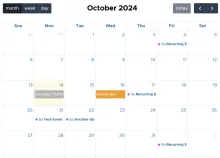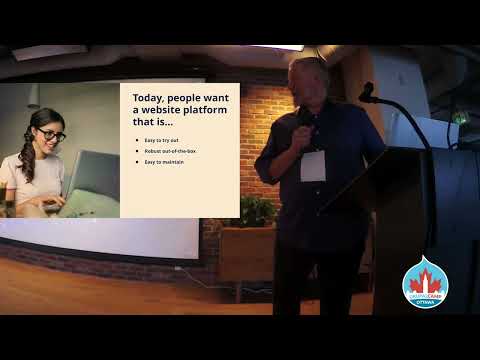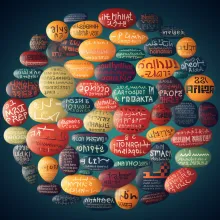Since I started working on the Drupal Event Platform initiative, a request that I've heard more than once is for a configurable theme. I have considered making a subtheme of Olivero that would expand the number of configuration options available, to allow for more options in the overall site styling, potentially including things like spacing, border-widths, and border-radius.
Drupal
In my last update about the Drupal CMS Events Recipe, I shared my concerns about the Fullcalendar View module, and in particular the move towards a paid model for sites to make use of commonly-requested features, even those that have seen patches posted by the community. This post will give a deeper dive on the progress to date, how the newer FullCalendar module compares, and a glimpse at the road ahead.
With DrupalCon Barcelona fast approaching I thought it was time to share some more updates on the progress of the events recipe for Drupal CMS a.k.a. the Starshot initiative.
When I first heard the vision for Starshot (now Drupal CMS), I knew exactly how I wanted to contribute. For years I have been working on trying to make it easier to quickly build Drupal sites following established best practices. I had been working on a set of modules I called Configuration Kits, but they were conceptually very similar to Recipes, albeit in a simpler (and less flexible) form.
Join us for an inspiring keynote as we explore the exciting opportunities within the Drupal community, ignited by the Starshot initiative announced at DrupalCon Portland. Whether or not you are a coder, there are countless ways to get involved and make a meaningful impact.
We will share practical tips for first-time contributors and showcase real-life examples from Martin's personal Drupal journey. Discover how he stays passionate and motivated, and learn how you can find your own unique path in the Drupal community.
Don’t miss this chance to embark on your Drupal adventure!
I just tagged the first stable release for Smart Date 4.1, a year (almost to the day) since the first stable release of Smart Date 4.0. A lot of work went into this new release, but I'm thankful beyond words to the many people who helped shape it into what it is today.
A recent analysis by the IMF estimates that 40% of jobs globally, or 60% of jobs in advanced economies, will be impacted by the growing adoption of AI. How will it impact your role? In my opinion the surest way to secure your place in these transformed economies will be by including AI in the toolset you use to stay competitive.
One of the things that got me started using Drupal was its powerful ability to work with multiple languages. I believe it's still a differentiator for Drupal in an increasingly crowded CMS space, particularly the degree to which all the text that appears on a Drupal site can be translated through the admin interface.
As part of my ongoing work on the Event Platform modules for organizing DrupalCamps and similar events, I wanted to add to the recently introduced Scheduler interface, by allowing a site builder to specify a list of workflow (content moderation) states that would be used to restrict which sessions (or other content types) to list. After, it wouldn't make sense to ask an editor to have to pick through the rejected sessions as part of the scheduling interface.
The planning for a 4.0 release of Smart Date began towards the end of 2021, but there were still lots of opportunities to fix bugs and add features without going to a major release. In the end, the need for a major release was triggered by Drupal 10, though in actuality by its updated PHP dependency, to use a minimum version of 8.1.








